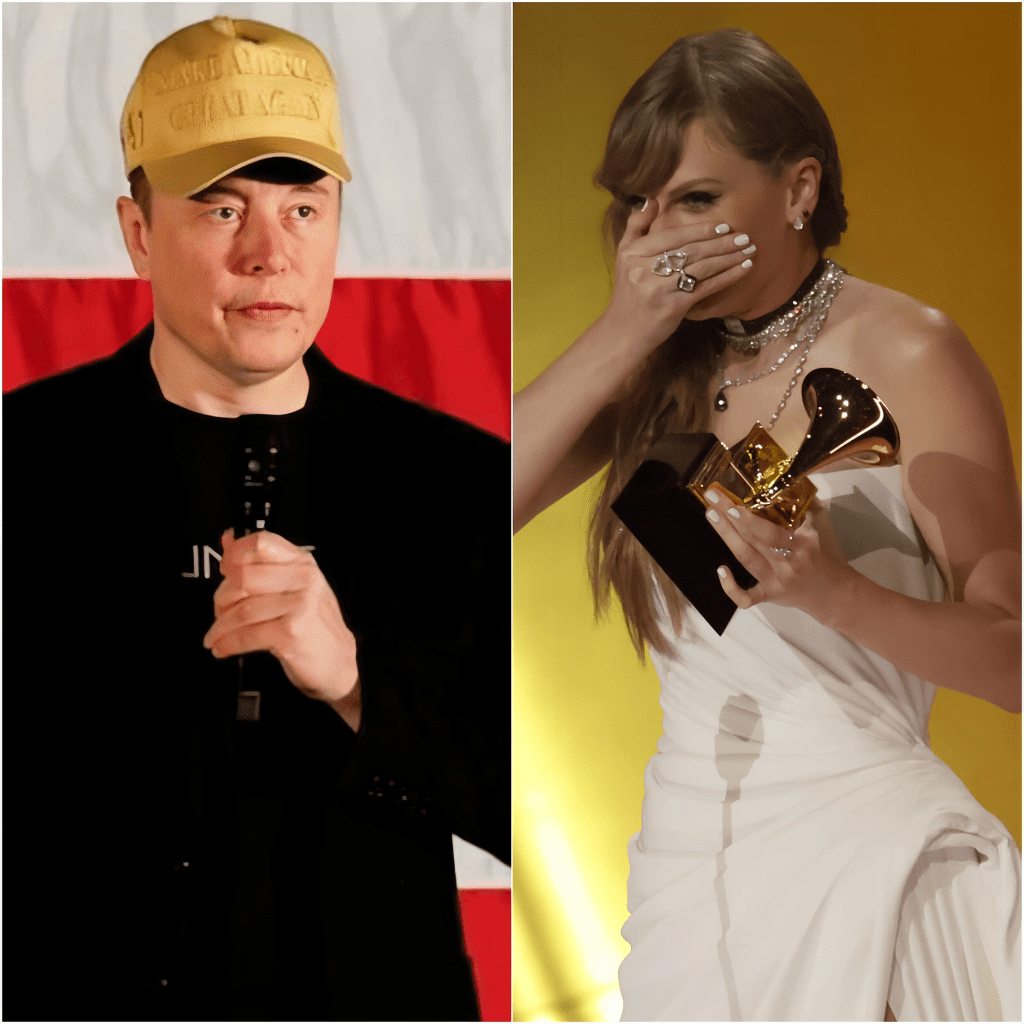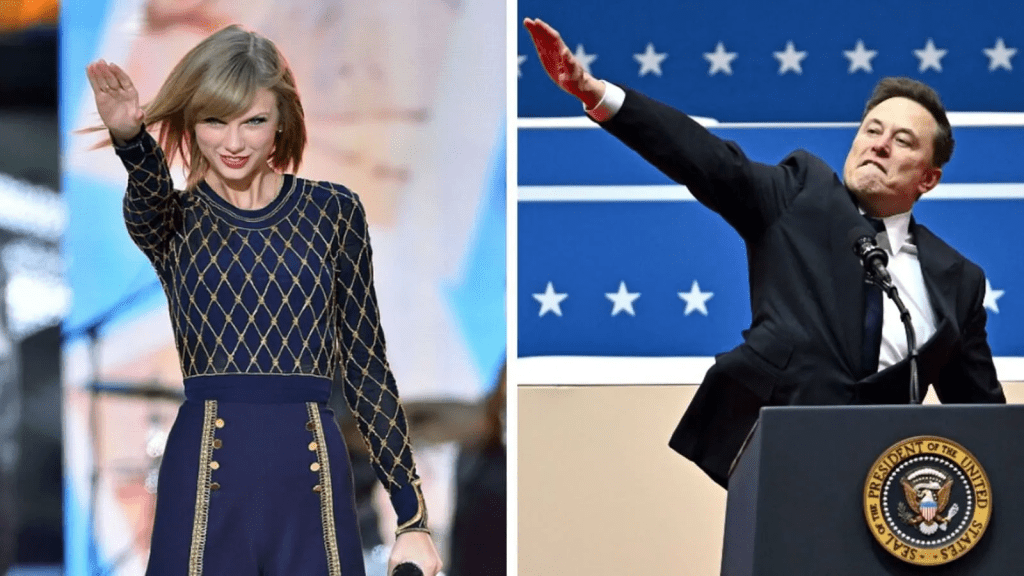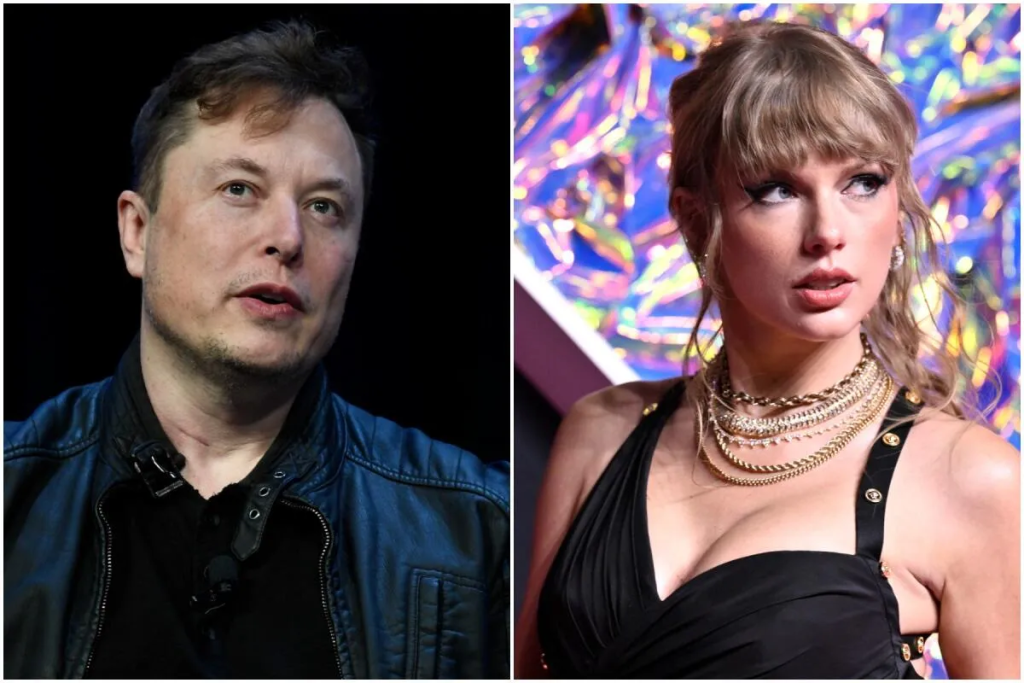In an unprecedented turn of events that has sent shockwaves through the music industry and ignited a firestorm of controversy online, it has been officially confirmed that global superstar Taylor Swift has been removed from the nominations for the upcoming Grammy Awards. The Recording Academy, the organization behind the prestigious awards, released a terse statement late yesterday evening confirming the removal, citing an “internal review process” and maintaining the decision was made to “uphold the integrity of the awards.” However, buried within various industry insider reports and quickly escalating social media discussions, a far more explosive detail has emerged: the removal is alleged to be the direct result of a request from tech magnate Elon Musk.
The revelation that Musk, known for his ventures in electric vehicles, space exploration, and social media platforms, played a pivotal role in the Grammys’ decision has sent the internet into a frenzy. Initial reactions have ranged from disbelief and outrage from Swift’s devoted fanbase, the “Swifties,” to cautious speculation and condemnation from music industry professionals. Details surrounding Musk’s supposed involvement remain scarce and shrouded in a veil of official denials and carefully worded statements. Sources close to the Recording Academy, speaking on condition of anonymity, have hinted at immense external pressure brought to bear on the organization in recent days. While refusing to directly confirm Musk’s involvement, these sources acknowledge the “unusual circumstances” surrounding Swift’s sudden disqualification and the speed with which the decision was made.
Musk himself has yet to publicly comment directly on the Grammy situation. His typically active social media presence has been uncharacteristically silent on the matter, fueling further speculation and adding to the sense of intrigue and unease. However, several posts, purportedly from individuals within Musk’s inner circle and leaked to various online forums and media outlets, suggest a growing animosity between Musk and Swift. These unsubstantiated claims point towards a possible personal conflict, with theories ranging from a business disagreement to differing political views and even rumors of a past social snub. While the exact nature of any potential conflict remains shrouded in rumor and conjecture, the narrative of a powerful billionaire wielding influence to impact the career of one of the world’s most beloved artists is rapidly gaining traction in the public consciousness.
The Recording Academy’s official statement, while confirming the removal, offers little in the way of concrete explanation. It speaks of “maintaining the highest ethical standards” and ensuring a “fair and transparent nomination process.” However, these platitudes have been met with widespread skepticism and accusations of lacking transparency. Critics are questioning the timing and suddenness of the decision, particularly given that the Grammy nominations were already publicly announced and celebrated. Many are pointing to the unprecedented nature of removing a nominee after the official announcement and questioning the validity of any “internal review process” that could lead to such a drastic reversal at this late stage. The lack of specific details regarding the alleged ethical breach or procedural violation has only served to deepen suspicions and fuel the narrative of external interference.
The immediate fallout from this decision is already being felt across the music landscape. Swift’s fans, renowned for their fervent loyalty and online activism, have launched a massive social media campaign, trending hashtags like #JusticeForTaylor and #BoycottTheGrammys worldwide. Calls for a complete boycott of the Grammy Awards ceremony are gaining momentum, with many Swifties vowing to abstain from watching and urging other artists and fans to join their protest. This outpouring of fan anger represents a significant challenge for the Recording Academy, as viewership and online engagement are crucial metrics for the awards show’s continued relevance and commercial success. The potential for a substantial drop in ratings and public interest is a real concern, and the Academy is facing mounting pressure to address the controversy more transparently.
Beyond the immediate fan reaction, the broader music industry is grappling with the implications of this unprecedented situation. Many artists and industry professionals are expressing concerns about the potential for external influence to undermine the integrity of award shows. Whispers of behind-the-scenes maneuvering and powerful individuals pulling strings have long been part of the industry’s folklore, but this alleged instance, involving a figure as prominent as Elon Musk, represents a stark escalation. Concerns are being raised about the vulnerability of award shows to external pressures and the potential chilling effect this could have on artistic expression and independence. Some are questioning whether this sets a dangerous precedent, suggesting that the Grammys, once seen as a bastion of artistic merit, could now be susceptible to the whims and agendas of powerful individuals outside the music industry.
The legal ramifications of this decision are also being closely scrutinized. Legal experts are debating the contractual obligations and rights of nominees once nominations are officially announced. Questions are being raised about potential breach of contract, defamation, and the legal basis for the Recording Academy’s decision to remove Swift at this stage. While the Academy maintains it acted within its rights and procedures, legal challenges cannot be ruled out, particularly given the high stakes and the potential for significant financial and reputational damage. The legal battles that could ensue could further prolong the controversy and cast a long shadow over the upcoming Grammy Awards, regardless of the outcome.
From a public relations perspective, the Recording Academy is facing a monumental crisis. Their initial, vague statement has only served to exacerbate the situation, fueling speculation and public anger. The lack of transparency is being perceived as an admission of guilt or, at the very least, a failure to adequately address the legitimate concerns being raised. Public trust in the Grammy Awards, already facing scrutiny in recent years regarding diversity and representation, is now severely eroded. The Academy’s ability to regain public confidence hinges on their willingness to provide a full and transparent explanation for their decision, addressing the allegations of external influence and demonstrating a commitment to fairness and artistic integrity.
The unfolding drama surrounding Taylor Swift’s Grammy removal and Elon Musk’s alleged involvement raises profound questions about power, influence, and the future of the entertainment industry. It highlights the growing influence of tech billionaires in shaping cultural narratives and the potential for their personal agendas to impact even seemingly independent institutions like the Recording Academy. This incident serves as a stark reminder of the complex power dynamics at play in the modern media landscape and the ongoing struggle to maintain artistic integrity in an era of increasing corporate and individual influence. The long-term consequences of this unprecedented decision remain to be seen, but one thing is certain: the 2024 Grammy Awards, already anticipated as a major cultural event, are now shrouded in a cloud of controversy and uncertainty, forever marked by the shadow of this extraordinary and deeply unsettling turn of events.

















